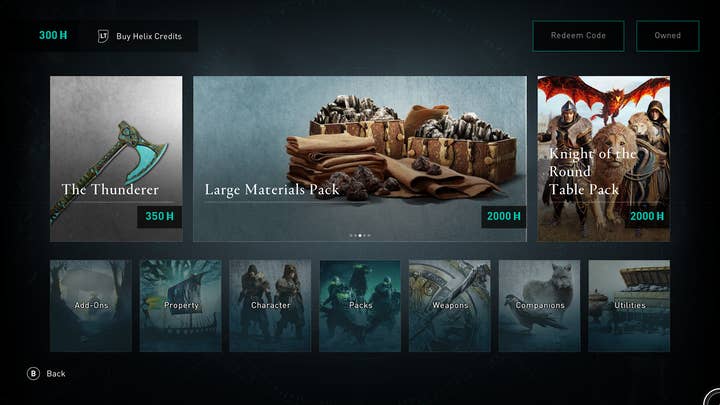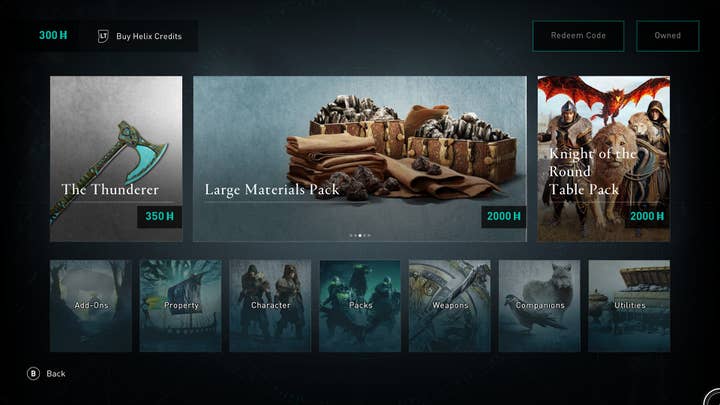Ubisoft's free-to-play turn could be the new normal for big franchises | Opinion
Ending failed attempts to mix free-to-play systems into premium games, and instead making separate, high-quality titles for major IP, is a winning strategy
For the past decade -- ever since free-to-play revenues on mobile app stores soared past the revenues from premium games and kept going -- publishers have hunted for ways to mix some of that seemingly magical free-to-play special sauce into their AAA titles.
Some of them went all the way, turning AAA titles outright into free-to-play games -- a trend that was especially noticeable in the MMORPG and online multiplayer focused titles of the early 2000s -- while the majority of games went for a half-measure, keeping their up-front price tags high but also sprouting in-game item stores and packs of premium currency for players to buy.
Aiming for the best of both worlds, this approach -- and most other efforts to attach free-to-play mechanisms to premium, paid-for games -- ended up instead offering the worst, annoying and alienating players who had paid for the game and never actually creating the kind of free-to-play revenue volumes executives had daydreamed about.
The real opportunity for free-to-play lies in the significant audiences who engage almost exclusively with it - not in trying to nickel and dime the existing premium audience
That's the background context to by far the most discussed and controversial announcement of the various statements made in financial reports in recent days -- Ubisoft's statement that it intends to focus on major free-to-play titles as it expands its title line-up. The company was quick to clarify that it's not reducing its premium, AAA title line-up from previously announced levels -- the increased investment in free-to-play titles will be additional to its current efforts -- although the point does still stand that there's a resource allocation decision being made here, and those new resources are going to free-to-play development, not to premium games.
This announcement sounds like a big deal, and in some ways it is -- but for the most part, it's just an explicit acknowledgement of something that's been a reality for some time across the industry, not just at Ubisoft. Those half-measure approaches of building almost universally reviled IAP stores into premium games haven't worked; they generate some additional revenue, sure, but the revenue they create is fairly directly proportional to the amount of damage you're doing to the goodwill towards your IP and the value of the franchise in future. That's an ugly trade-off for a publisher to have to make in return for what is, in most cases, a pretty unimpressive bump to the bottom line for a game.
Instead, what more shrewd publishers have started doing -- and what Ubisoft has now committed itself to -- is building up entirely free-to-play, service-based games as standalone offerings within a franchise, while continuing to work on the traditional premium / AAA releases on their usual schedule. By taking a half-step back and thinking about the free-to-play / premium conundrum at the level of the franchise overall, rather than insisting on trying to shoehorn these incompatible systems into an individual games, publishers can actually realise a best-of-both-worlds approach -- giving them a regular drumbeat of AAA releases pushing enormous, albeit "spiky", revenues after a couple of years of development, along with a steady, ongoing income stream from an free-to-play game that's in a pretty much permanent development cycle.

This is pretty much precisely what Activision has done, to significant success, with Call of Duty Warzone -- and it's the model that Ubisoft now seems to see for most of its major franchises, with the company envisioning a future where it has three or four major tentpole releases across its big IPs each year, along with a significant free-to-play game for -- eventually -- each of those franchises.
In the best-case scenario, this creates some positive synergies between the two sides of each franchise: tentpole releases of premium games drive awareness and interest for the free-to-play service, while the free-to-play service keeps gamers engaged in between the tentpole releases. As with Warzone, Ubisoft's expectation seems to be that these free-to-play titles will sit alongside the premium games -- both in terms of quality and, ultimately, revenue -- rather than being some kind of cheap and unloved spin-off, as has been the case for free-to-play versions of major franchises (especially on mobile) in the past.
A separate, high-quality free-to-play experience will open AAA franchises to whole new audiences for whom the business model isn't controversial and never has been
Obviously, running a AAA development cycle and a totally separate high-end free-to-play service / development cycle is going to be a hell of a lot more expensive than just bolting a quick IAP store onto an almost-finished premium game and hoping for the best. The fervent but misguided belief that there must be some way to have the benefits of both styles of game without creating a new product entirely (and hence doubling the cost of development) lies at the root of much of the ill-fated experimentation with free-to-play mechanisms in premium titles that we've seen in the past decades, all of which have missed out on the actual promise and potential of free-to-play -- namely its ability to open up new audiences and demographics for a game.
The audience for free-to-play games overlaps with the audience for premium games somewhat, of course, but the real opportunity for free-to-play, especially for established franchises looking for ways to grow, lies in the significant audiences who engage almost exclusively with free-to-play games -- not in trying to use these systems to nickel and dime the existing premium audience.
The potential audience that Ubisoft or Activision could be opening up for their franchises with well-executed, well-operated free-to-play versions is notably different from the audience that's currently paying $60 or more for these franchises on launch days. Free-to-play audiences often skew younger, are generally perfectly willing to pay for certain things but far less keen on paying up front for content, and are extremely comfortable with free-to-play mechanisms (unlike the premium game consumers upon whom the IAP stores have been foisted thus far), having navigated these systems in games since they were children or teenagers. There's also a regional component -- audiences in much of Asia, for example, are far more likely to engage with a franchise in its free-to-play version than to pay up-front for a AAA title, simply because that's how they're accustomed to paying for games.

From the perspective of people who almost exclusively play premium games -- and, to clearly declare my interests, my own preferences as a consumer are increasingly firmly locked on the monolithic, relatively short, pay-up-front, don't-try-to-make-me-play-online-for-god's-sake end of the gaming spectrum -- the multi-million dollar question here is whether publishers slaking their thirst for additional revenues with actual, properly developed and focused free-to-play games will lead them to stop trying to crowbar poorly-considered IAP elements into premium titles.
It'll likely take a while to wean them off this habit, unfortunately, but ultimately it will make good business sense to make a more clear distinction between the premium tentpole games and the free-to-play games in this way -- the challenge will be pushing players who have enjoyed the premium game experience to try engaging with the free-to-play game (and then to stick with it long-term), not wasting that effort on trying to push them to spend a few extra cents in a dead-end IAP store that only emulates the least fun and engaging aspects of free-to-play experiences.
This approach will no doubt continue to be controversial for some time to come -- free-to-play systems in premium games have blotted their copybook far, far too many times in the past decade for that audience to be comfortable with having them near their beloved franchises. But that's actually the point, to a large extent; a separate, high-quality free-to-play experience will open up these franchises to whole new audiences of gamers for whom this business model isn't controversial and never has been, and if it's good enough, it'll win over some of the premium game consumers in time as well.
Call of Duty Warzone is a clear example of where we're headed, and Ubisoft's franchises are now set on the same path; the chances are good that what we're seeing here is actually the new normal for major publishers' franchises in the coming decade.

